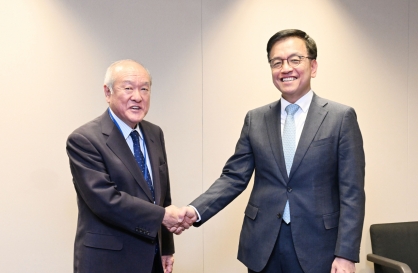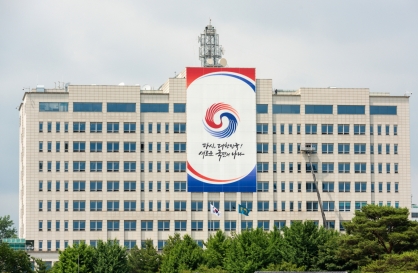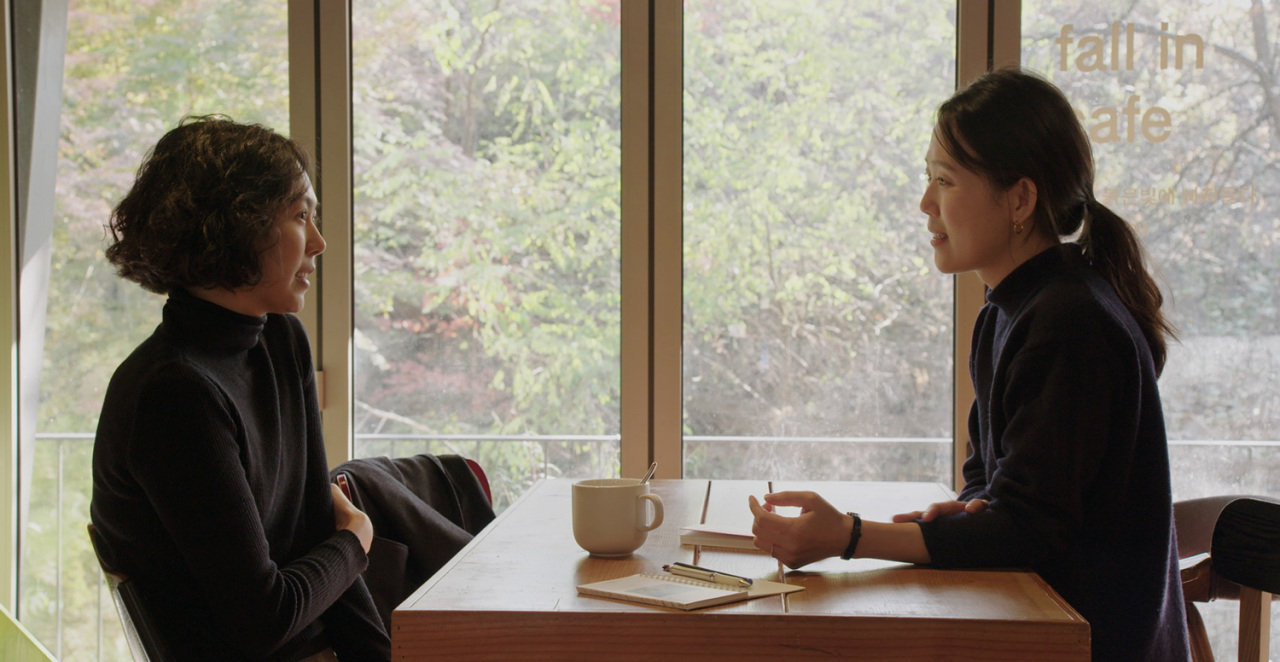 |
“The Woman Who Ran” (Jeonwonsa Film) |
“If he keeps on repeating himself, how can he be sincere?”
Nearing the end of “The Woman Who Ran,” this line, blurted out by a wife about her famous and “hypocritical” novelist husband, sounds like the perfect wakeup call and a punch in the head for the protagonist Gam-hee, who until now, has been forcing herself to be satisfied with the feeling of being loved.
Unlike what is implied by the title, South Korean arthouse auteur Hong Sang-soo’s 24th feature does not show any woman running away. The 77-minute film revolves around Gam-hee (played by Kim Min-hee), a married florist in Seoul, visiting three friends in the outskirts of the city while her husband is off on a short business trip. While the trip may not be unusual for some, for Gam-hee, who has never been separated from her husband during their five years of marriage, the three-day period was perhaps a “run” from the mundanity of her life.
The film follows around her encounter with the three women.
Her first stop is Young-soon (played by Seo Young-hwa), who is living in the countryside after divorcing her husband. Young-soon seems to be living a fairly tranquil life, growing vegetables in the apartment garden and taking care of stray cats with her roommate Young-ji. As the three are chatting casually over well-grilled meat and wine, about life, real-estate and love, a man from next door comes by to complain about the women feeding the stray cats as his wife is scared of them.
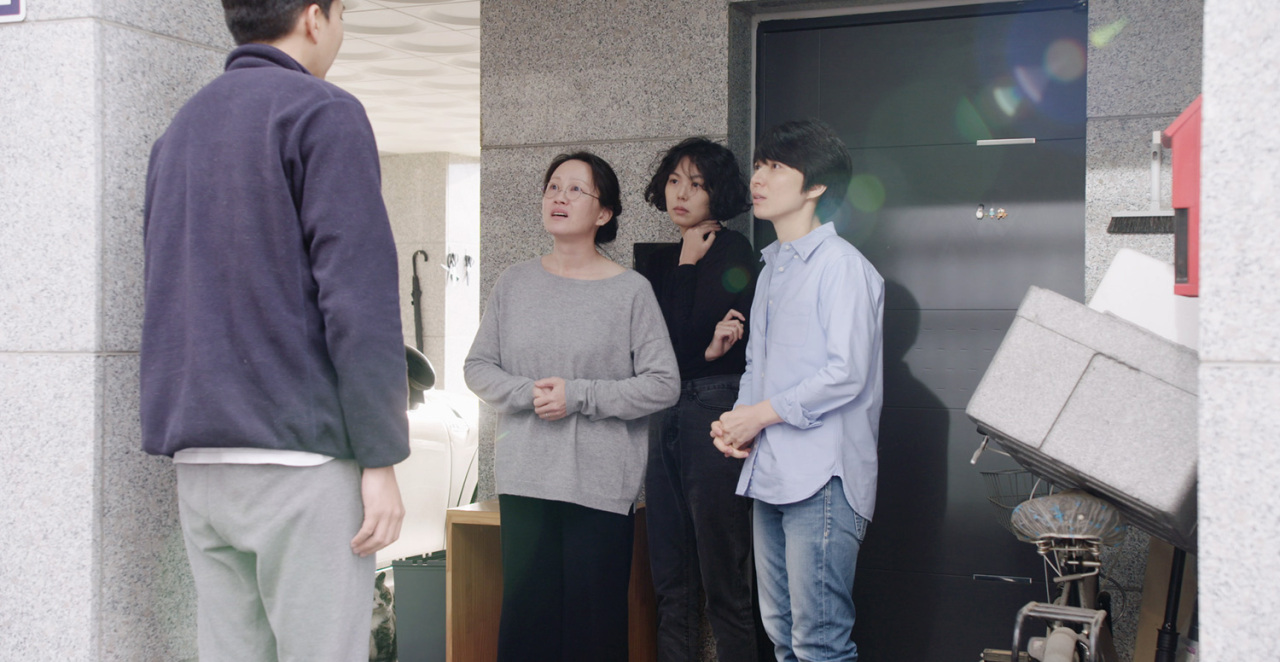 |
“The Woman Who Ran” (Jeonwonsa Film) |
Gam-hee goes on to meet Su-young (played by Song Seon-mi), a Pilates instructor who had recently moved to a well-off neighborhood with the money she had accumulated from her classes. As Su-young talks about the value of her house and her recent affairs with men from a nearby bar, Gam-hee gobbles up a full plate of pasta. Just as the two women are catching up, an irksome poet who has a crush on Su-young creeps up on the house, pestering pathetically for her attention.
Unlike the two previous encounters, the last one is an unprecedented run into an old friend Woo-jin (played by Kim Sae-byuk) at a small cinema, which, to Gam-hee’s surprise, was Woo-jin’s workplace. An uncomfortable air hangs around the two, who had parted ways several years back with Woo-jin marrying Gam-hee’s former lover. Woo-jin says the aforementioned quote about her husband, who is now a bestselling author and popular guest on television, complaining that he is becoming a dishonest person as he talks about the same thing over and over again to the public, but as if it is the first time every time.
Listening to all the trivial stories about the three friends’ life and love, Gam-hee repeatedly says, “He (her husband) says people in love should always be together. He says that’s natural,” as if persuading herself and the five years she had spent with her husband, unseparated even for a single day. Gam-hee’s somewhat feeble conviction about her single-minded love is even more evident, put next to her three female friends, who are still exploring and examining where their heart lies.
Hong’s latest feature holds the most female-centered narrative, subtly showing the different lives of three women independently weathering different stages of life. The marginalized position of the male characters -- mostly portrayed as self-important yet cowardly and lame -- typical in Hong’s films -- continues here, with all male characters having their backs turned toward the camera throughout the film.
Like most of his other films, the film is unaesthetic, with static long takes composing most scenes and seemingly crude camera movements moving the audience’s focus to sophistications beyond the dialogue.
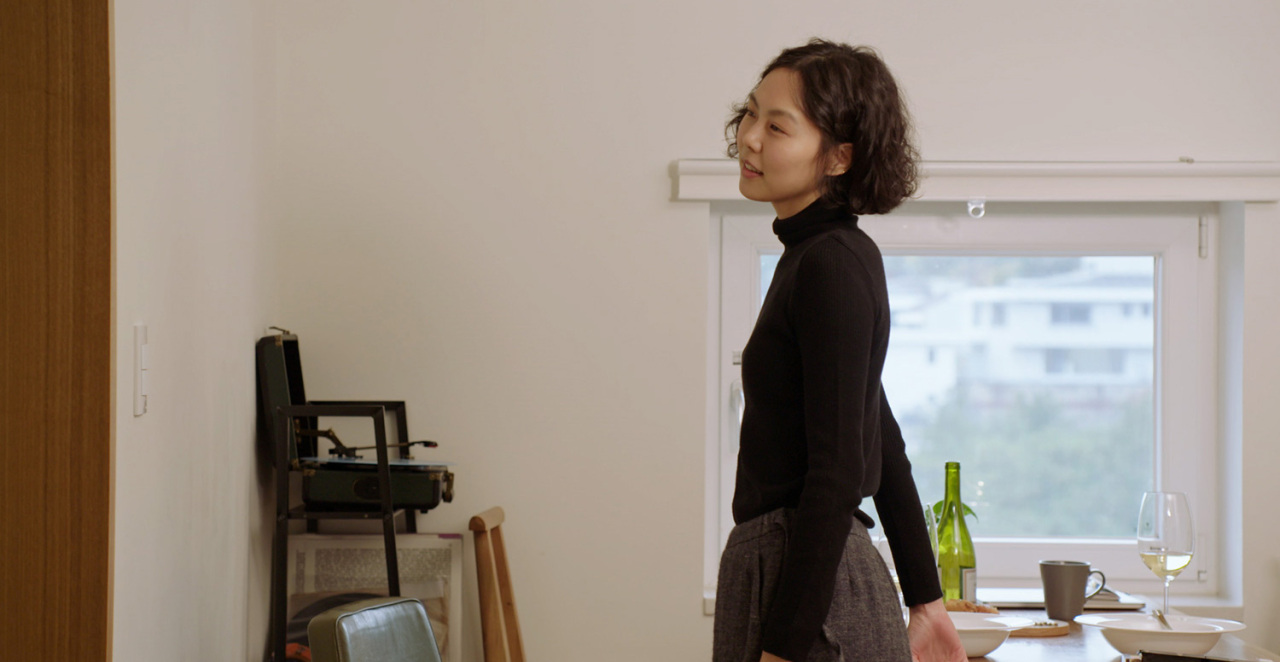 |
“The Woman Who Ran” (Jeonwonsa Film) |
Hong’s greatest muse and lover Kim Min-hee portrays the effortless realism in her acting of Gam-hee, who, through reconnecting with her old friends, finally comes to a stop to face the doubtful heart that she had been running away from.
With “The Woman Who Ran,” Hong brought home a Silver Bear prize for best director at the 70th Berlinale in February, the second Silver Bear in the director’s career since Kim Min-hee won it for the best actress in 2017 with “On the Beach At Night Alone.”
Although not one of South Korean audience’s favorite filmmakers, especially with the scandal surrounding his extramarital affair with Kim, he is undoubtedly a well-respected arthouse director in the international film scene who has now become a regular to prestigious international film festivals. For fans of his unique yet repeating style, his latest feature is definitely another from the Hong Sang-soo stable, but with an inch more depth in its understanding of women’s perspectives.
The film’s press preview was conducted in the absence of the director and the cast on Wednesday. It hits the local cinemas on Sept. 17.
By Choi Ji-won (
jwc@heraldcorp.com)




